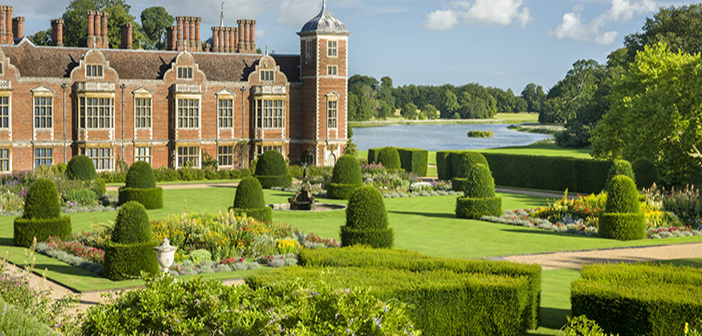The National Trust is this month beginning a pest control trial, using natural methods in a combination not previously used in a heritage setting, to tackle clothes moths at the estate believed to be the birthplace of Anne Boleyn.
Despite vigilant housekeeping and other preventive measures, common or ‘webbing’ clothes moths (Tineola bisselliella) have proved hard to control at Blickling Hall in Norfolk.
Now, a multi-pronged trial will use a microscopic ‘parasitoid’ wasp, Trichogramma evanescens, together with specially prepared moth pheromones and the Trust’s existing regime, to target the whole lifecycle of the moth, which can cause serious damage to carpets, furniture, clothing and other wool and silk objects.
While wasps and pheromones have been used separately against clothes moths, and pheromones have been used to manage moth pests in agricultural settings, the Trust believes the combination hasn’t been deployed in a heritage setting until now.
Historyonics, owned by David Loughlin, a member of Pest Technical Advisory Board, is supplying the wasps and pheromones to the National Trust.
Mr Loughlin said: “There has been a global move to adopt biological techniques to manage pests of food crops, so this is a natural development to adopt similar tools to manage the pests threatening our valuable national heritage.”
Trichogramma evanescens is a natural enemy of the clothes moth and measuring about 0.5mm, the wasp is barely visible and is not harmful to humans or other animals.
The wasps are supplied in small card dispensers (each containing around 2,400 wasps) which can be discreetly hung or placed in drawers or open rooms.
The trial will also use pheromone ‘tabs’ to disrupt adult mating.
Hilary Jarvis, the National Trust’s assistant national conservator, said: “We are really hoping this pioneering approach will provide a practical and sustainable method that any of our properties can use to deal with serious infestations.
“Although these are rare, they can sometimes prove immune to our usual, more gentle approaches, with potentially serious results.”
The National Trust hopes to present the trial at the Pest Odyssey virtual conference in September, which advocates for sustainable pest management in cultural heritage institutions.


